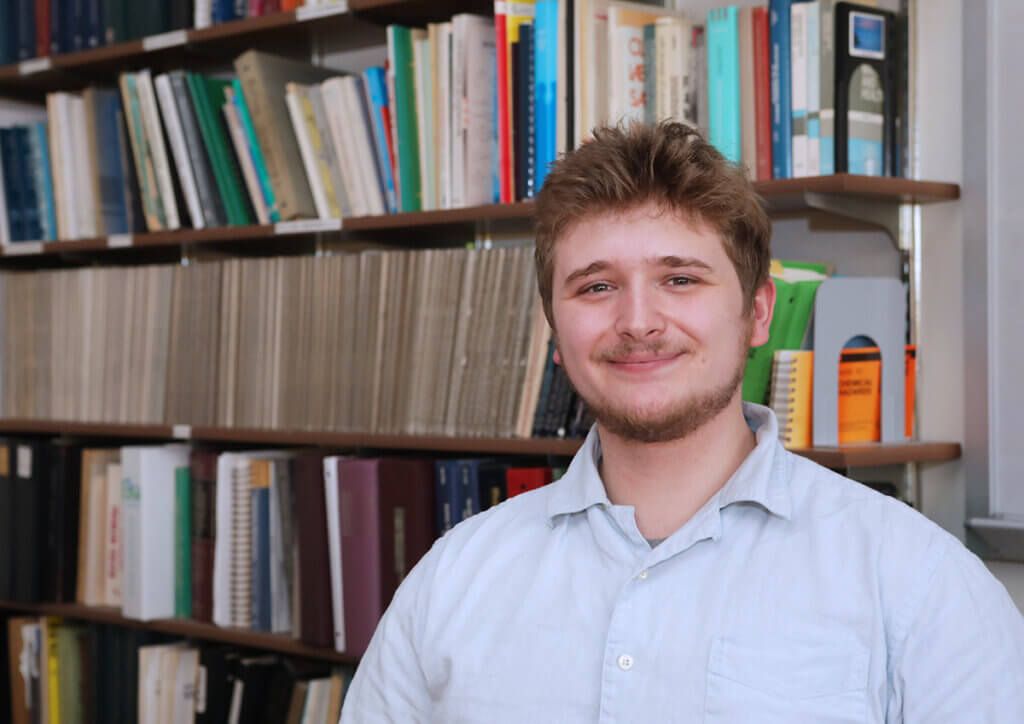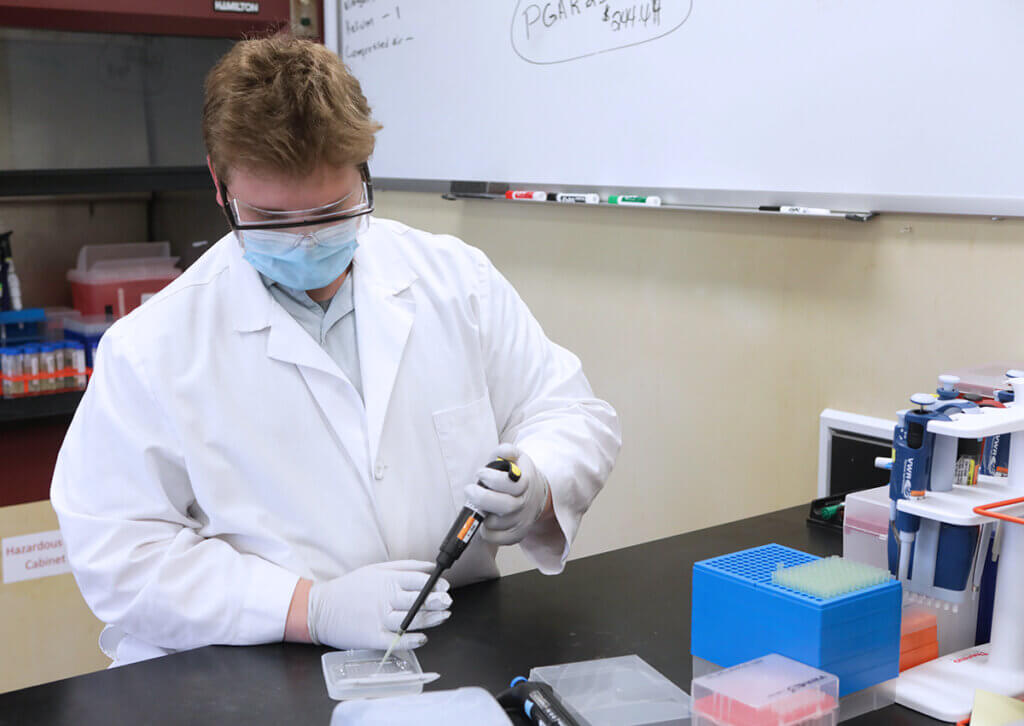
Meet Jacob Seay, a toxicology technician in the Animal Disease Diagnostic Laboratory. Jacob also is a member of the Campus Support Staff Advisory Committee (CSSAC), which recently recognized him in the Campus Connection newsletter’s “Member Spotlight,” showcasing his work with the ADDL and his service on the committee.
Originally from Lake Station, in Northwest Indiana, Jacob came to Purdue to pursue a Bachelor of Science degree in biochemistry, which he earned in May 2020, during the onset of the pandemic. After graduation, he applied to the ADDL for the position of toxicology technician. Due to pandemic-related delays, several months passed before he was hired in February 2021. Jacob said he enjoys being a toxicology technician because the variety in the workload of diagnostic cases provides flexibility and prevents things from becoming monotonous. According to Jacob, the Toxicology Section is also very tight knit, so there is plenty of communication and opportunities for non-diagnostic work, including research and test development.
“I really enjoy the analytical chemistry work in the Toxicology Section, and some extra research opportunities shared with me by my supervisors,” Jacob said. “Dr. Christina Wilson-Frank and Dr. Stephen Hooser really engaged me and encouraged me in my pursuit of graduate studies at Purdue.” He has applied for a PhD program in biochemistry.

About his involvement with CSSAC, Jacob explained that the term staff encompasses a large variety of jobs. “So being a part of the committee shows how such a diverse group keeps Purdue alive,” he said. Jacob serves on the CSSAC University Relations subcommittee. In that role, he is involved in presenting information and coordinating meetings with support staff across campus to share CSSAC’s purpose and provide resources. Jacob is also participating in a working group for the University’s Shared Governance Taskforce, which will be synthesizing information produced by a number of working groups into a proposal that is to be presented to the Purdue Board of Trustees in April, 2022. Jacob said the hope is to increase representation and communication across campus and create a governance model for Purdue University that offers voice for faculty, students, and staff alike.
Outside of his Purdue responsibilities, Jacob said his closest family are his aunt and uncle, and two cousins who are like brothers to him. He lives with his partner of two years, Juliauna, and they recently adopted a cat to keep them company. Jacob’s favorite hobbies are cooking and woodworking. His partner is also a freelance artist; together they paint or sketch to have a relaxing night or weekend.
About the Campus Support Staff Advisory Committee
The Campus Support Staff Advisory Committee (CSSAC) was established in 1965 to serve as a means of representative participation for the clerical and service staff at Purdue University. The group makes recommendations to the Vice President for Human Resources, who is then responsible for planning and recommending policies concerning human resources and staff benefits.
